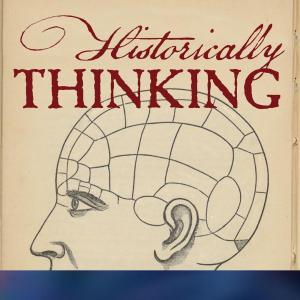Historically Thinking

Episode 318: Speaking Yiddish to Chickens
East of Philadelphia and west of Atlantic City is the city of Vineland, situated in more or less the geographical center of South Jersey. Since the late 19th century, it had been the center of a dispersed community of Jewish farmers. Following the Second World War, a few thousand survivors of the Holocaust decided not to settle in American cities, but like earlier Jewish immigrants became farmers in South Jersey. Seth Sten’s grandparents were two of these refugees. In his new book Speaking Yiddish to Chickens: Holocaust Survivors on South Jersey Poultry Farms, he tells not only their own story, but that of their fellow immigrants, and of the community in which they settled–one in which previous waves of Jewish immigrants had built and rich network of cultural and religious institutions that Alexis de Tocqueville would have recognized, and admired. Like all new farmers in America, many failed; many regarded it as the worst time of their lives; and others, even those who left the rural life and moved to the cities for jobs and other opportunities, regarded it as their best years in America. Seth Stern is a legal journalist and editor at Bloomberg Industry Group. He previously reported for Bloomberg News, Congressional Quarterly, and the Christian Science Monitor. This is his second book. For Further Investigation The Sam Azeez Museum of Woodbine Heritage, in Woodbine, NJ, preserves the history of the earliest Jewish agricultural settlements in South Jersey The Alliance Jewish Cemetery in Norma, New Jersey, founded in 1882. Jewish Farming in the Garden State: note the list of Jewish "colonies" "The History of Jewish Farming in the Garden State" The South Jersey Culture and History Center has further resources on Jewish settlements Miles Lerman (1920-2008): an obituary from the United States Holocaust Memorial Museum






 Visit Podcast Website
Visit Podcast Website RSS Podcast Feed
RSS Podcast Feed Subscribe
Subscribe
 Add to MyCast
Add to MyCast